In a world where science fiction meets reality, AI biotech companies are shaking up the life sciences landscape like never before. Imagine robots in lab coats, crunching data faster than you can say “genetic engineering.” These innovative firms are harnessing the power of artificial intelligence to revolutionize everything from drug discovery to personalized medicine.
Gone are the days of lengthy trial-and-error processes. With AI on their side, biotech companies are speeding up research and cutting costs, all while making breakthroughs that once seemed like magic. So, if you thought biotech was just for lab geeks and mad scientists, think again! It’s the future, and it’s looking smarter, faster, and a whole lot more exciting. Buckle up as we dive into the fascinating world of AI-driven biotech and discover how these companies are changing the game for good.
Table of Contents
ToggleOverview of AI Biotech Companies
AI biotech companies leverage advanced technologies to reshape the landscape of life sciences. These companies utilize machine learning algorithms to expedite drug discovery processes, enabling the identification of viable drug candidates in significantly shorter timeframes. Enhanced predictive analytics allows for the optimization of research workflows, leading to reduced costs associated with R&D.
Numerous startups and established firms are investing in AI-driven solutions to drive innovation. For instance, companies like Tempus focus on using AI to analyze clinical and molecular data, improving patient outcomes. Another example is BenevolentAI, which employs machine learning to uncover new drug targets.
AI applications extend to personalized medicine as well, where tailoring treatments to individual patient profiles is becoming feasible. Data integration from sources like electronic health records aids in developing targeted therapies. In addition, predictive modeling supports clinical decision-making, promoting better treatment strategies based on patient-specific information.
Regulatory challenges persist, but AI biotech firms are actively working to navigate these hurdles. Companies must demonstrate the efficacy and safety of AI-enhanced therapies while ensuring compliance with strict guidelines. Collaboration between tech companies, research institutions, and regulatory bodies is crucial for fostering an environment conducive to innovation.
Investors recognize the potential of AI in the biotech sector. Venture capital funding has surged, with billions allocated to startups focused on AI applications in life sciences. This influx of capital opens new avenues for development, enhancing capabilities to address pressing healthcare needs.
AI biotech companies represent a convergence of technology and biology, driving significant advancements in healthcare. Through innovative approaches, these firms are poised to transform the industry, leading to more effective treatments and improving patient care.
Impact of AI on Biotechnology

AI significantly transforms the biotechnology sector, paving the way for innovative breakthroughs and enhanced efficiency. Companies in this field leverage sophisticated algorithms to drive research and development.
Advancements in Drug Discovery
AI dramatically accelerates drug discovery processes. Algorithms can analyze vast datasets and predict which compounds are most likely to succeed as viable drug candidates. This method shortens the timeframes associated with traditional approaches. For example, AI-driven platforms like Atomwise employ deep learning to screen millions of compounds in hours, leading to the identification of promising candidates. The integration of AI reduces costs while enhancing the likelihood of successful drug formulations. As a result, pharmaceutical companies increasingly rely on AI to streamline workflows and overcome lengthy development cycles.
Enhancements in Genomic Research
Genomic research benefits greatly from AI integration. Machine learning models efficiently analyze genetic data, enabling researchers to uncover insights into diseases at a molecular level. Companies such as 23andMe utilize AI to decode complex genetic information, providing personalized insights into health risks and traits. Enhanced data processing capabilities facilitate rapid analysis of genomic sequences, allowing scientists to identify gene variations linked to specific conditions. This acceleration aids the development of targeted therapies and personalized treatment plans, ensuring more effective patient care.
Key Players in the AI Biotech Industry
AI biotech companies are at the forefront of transforming the life sciences landscape. They leverage advanced technologies to drive innovation and enhance healthcare solutions.
Established Companies
Tempus leads the charge in integrating clinical and molecular data to enhance patient outcomes. BenevolentAI excels in machine learning, identifying new drug targets swiftly. Additionally, GRAIL focuses on early cancer detection through the analysis of genomic data, while Amgen utilizes AI for drug development efficiency. Each of these companies demonstrates the ability of established players to harness AI for significant advancements in research and therapy.
Emerging Startups
Several emerging startups are making notable strides in the AI biotech field. Atomwise uses AI to predict viable drug candidates, significantly speeding up the discovery process. ZymeHook focuses on accelerating antibody development by utilizing machine learning to refine binding affinity. Another startup, Insilico Medicine, applies AI-driven solutions to drug discovery and aging research. These newcomers reflect the dynamic nature of the industry, pushing boundaries and introducing innovative solutions to healthcare challenges.
Challenges Faced by AI Biotech Companies
Navigating regulatory hurdles represents a significant challenge for AI biotech companies. Compliance with strict regulations necessitates thorough validation of AI models, which can prolong the development timeline. Ensuring data integrity and patient privacy adds another layer of complexity, demanding adherence to laws such as HIPAA and GDPR.
Implementing advanced technologies often requires substantial investment. Companies must secure funding to develop infrastructure capable of supporting AI initiatives. Limited access to specialized talent presents further difficulties, as experts in both biotechnology and artificial intelligence are in high demand.
Integrating AI into existing workflows can disrupt traditional practices within organizations. Organizations face resistance to change from established methodologies, making adaptation essential for success. Technical challenges also arise, particularly when aligning AI solutions with diverse data sources and formats across the biotech landscape.
Moreover, maintaining accuracy in AI predictions remains critical. The reliance on quality data directly influences the effectiveness of AI models. Variability in data quality, particularly in clinical settings, might lead to misleading results, impacting research outcomes and therapeutic efficacy.
Competition in the industry adds pressure. Numerous startups and established firms are rushing to innovate, making market differentiation vital. Staying ahead requires continuous investment in R&D to develop unique solutions that address urgent healthcare challenges.
Lastly, ethical considerations around AI applications cannot be overlooked. Companies must address issues related to bias in algorithms and ensure fairness in treatment recommendations, particularly in personalized medicine. A focus on transparency in AI-driven processes can help build trust among stakeholders.
Future Trends in AI Biotechnology
AI biotechnology is set to transform the future of life sciences through innovative developments. Integration of machine learning with genomics enhances personalized medicine, allowing for tailored treatment plans based on individual genetic profiles. The growth of predictive analytics sharpens drug discovery processes, resulting in faster identification of potential drug candidates.
Investments in AI biotech are rapidly increasing, attracting substantial venture capital. This trend fosters expansion among both established companies and new startups. More funding empowers companies like Tempus and BenevolentAI to advance their technologies further. Collaboration among tech firms, research institutions, and regulatory bodies plays a crucial role in overcoming challenges associated with AI adoption.
Ethical considerations are gaining attention as AI applications expand. Addressing concerns about bias and fairness is vital for building stakeholder trust. Future solutions will depend on developing frameworks that ensure data integrity and patient privacy. Regulations are evolving alongside technology, enhancing the landscape for AI-driven therapies while maintaining safety.
Emerging AI tools, such as those developed by Atomwise and Insilico Medicine, are changing the landscape. Breakthroughs in drug discovery and genomic research accelerate innovation in identifying health risks and developing targeted therapies. Each advancement contributes to a richer understanding of disease mechanisms.
AI biotechnology is on a trajectory toward deeper integration within healthcare systems. Focus on refining research methodologies promises to yield new treatment options and efficiencies. The next decade will likely showcase significant strides in AI applications, revolutionizing how therapies are conceived, developed, and delivered.
AI biotech companies are at the forefront of a revolutionary shift in healthcare. By harnessing advanced technologies they’re not only accelerating drug discovery but also paving the way for personalized medicine. The integration of AI into biotech is transforming traditional approaches and fostering innovative solutions that address complex health challenges.
As these companies navigate regulatory hurdles and ethical considerations they continue to attract significant investment. This momentum is crucial for driving further advancements and enhancing patient outcomes. The future of AI in biotechnology holds immense potential promising to reshape the landscape of life sciences and improve healthcare delivery on a global scale.



